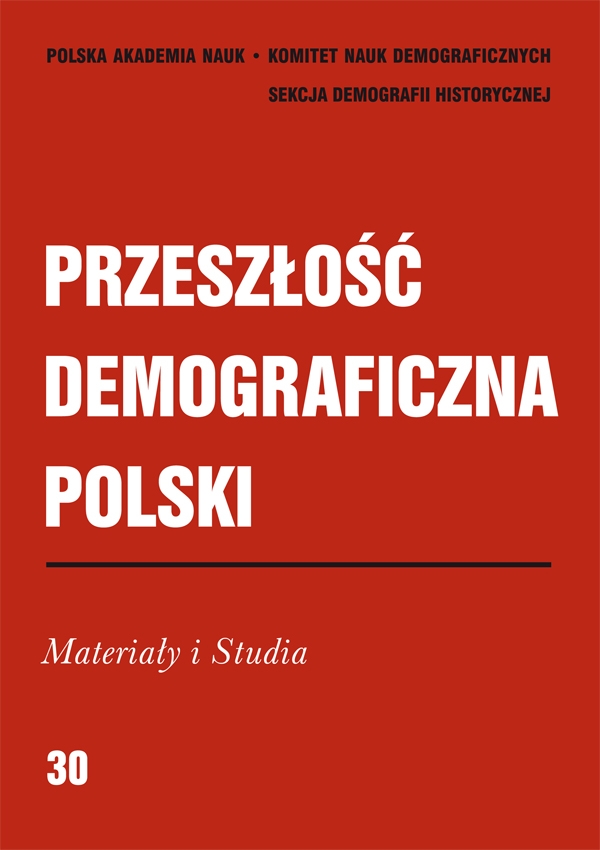Szlachta ziemi ciechanowskiej w świetle taryfy podymnego z 1775 roku
Słowa kluczowe:
szlachta, taryfa podymnego, demografia, Ciechanów, 1775Abstrakt
The nobility of the Ciechanów region in the chimney tax roll of 1775
The author of the article examines the 1775 chimney tax register for the Ciechanów region compiled in accordance with a parliamentary act provisions; in particular, he examines the size of the local nobility population and its stratification. For the purpose of comparison the author used birth, marriage and death registers as well as court and visitation church registers.
In 1775 there were 8.120 hearths listed to be taxed in the three districts Ciechanów, Przasnysz and Sąchocin making up the Ciechanów region. Among them, 6.557 hearths in villages and 5 hearths in towns were owned by the nobility 2.699 separate estates in total. The richest nobility owners with 30 or more hearths owned 2.372 hearths, i.e. over 36% of nobility-owned hearths in villages and over 29% of all hearths in the Ciechanów region. This group usually held state or local offices and made up only 1.5% of nobility owners in the region. Other local members of the nobility owned small manor farms or one-hearth smallholdings. The biggest groups of impoverished nobility were to be found in the Ciechanów district, and in the western and central part of the Przasnysz district.
After discounting the hearths inhabited by peasants in nobility estates and adding the inhabitants of farms as well as priests — in both cases usually coming from the local nobility — together with their families and relatives, the local nobility population could be estimated at 13.500 people assuming that there were 5 people living in each nobility-inhabited hearth, i.e. over 31% of the entire population of the region in question.
This source, when compared with the birth, marriage and death registers as well as court and parishioner registers, proves to be highly credible and complete. It confirms that the local nobility population was large and stratified — from few potentates of national significance to numerous paupers.

